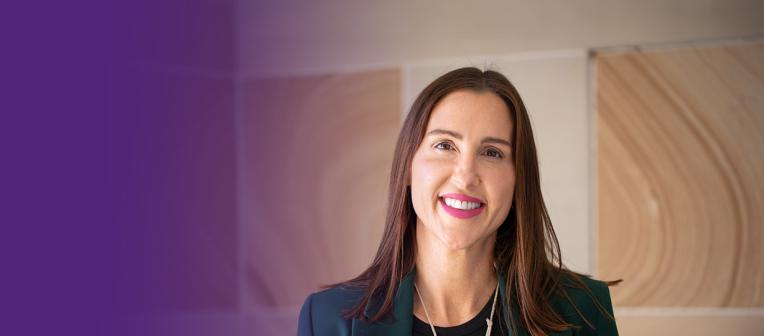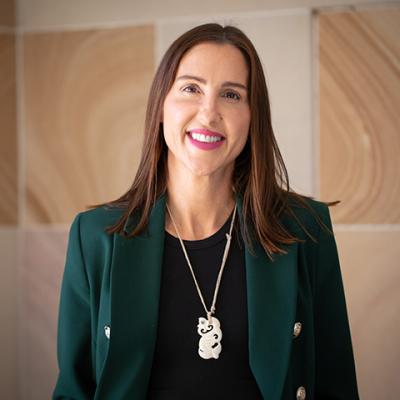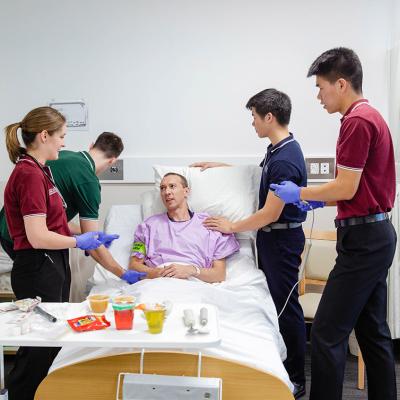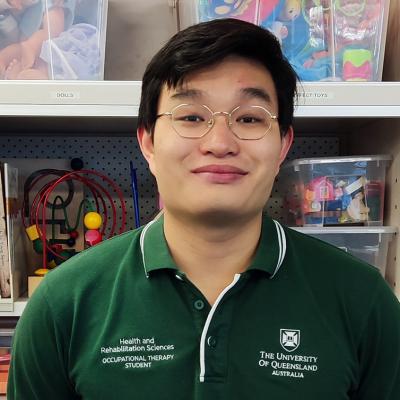Meet Dr Roma Forbes, Senior Lecturer, Program Director of The University of Queensland’s Bachelor of Physiotherapy (Honours), musculoskeletal physiotherapist, and award-winning educator.
There’s a perception that university only provides the theoretical knowledge for students and that the real confidence of being a professional is only gained once you enter the workforce.
Tell that to Roma.
Her passion for physiotherapy ensures her students are well prepared for their future careers. By exposing them to real cases and simulated patient experiences, they gain valuable insights into what they can expect on the job. Her research also equips employers with the necessary tools to support new graduates in a way that benefits the students’ careers and the healthcare needs of the community.
Teaching for beyond the classroom
In her role as a physiotherapy educator at UQ, Roma’s teaching focuses on important areas of clinical practice and challenging issues for patients such as chronic pain. Above all, she makes sure her students are equipped with the knowledge, skills and confidence to help real people with real needs.
"In my courses, students are learning very complex, applied clinical content, such as how they go about managing individuals with persistent pain," she says.
Roma also co-leads UQ's award-winning clinical simulation program. This program exposes students to real patients throughout their studies, allowing them to build on the knowledge and skills they develop in the classroom.
"I’m really driven by social approaches to teaching that put students at the centre, with a focus on building their confidence," says Roma.
"A student who is confident about who they are and the impact they can have is a more effective and fulfilled clinician and a better lifelong learner."
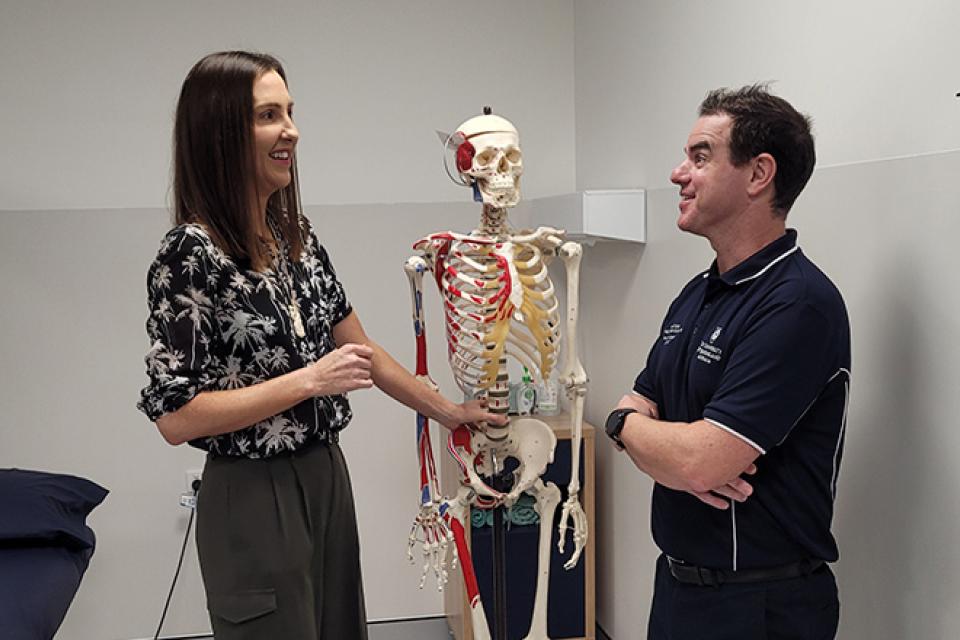
Research with an impact
While her teaching focuses on preparing her students for the workforce, Roma’s research ensures that graduates are ready for the ongoing challenges and ever-changing nature of the industry.
"My research focuses on how recent physiotherapy graduates and health professionals transition from student to clinician, the challenges they may face in clinical practice, the plans they have for their careers, and the different support they’ll require along the way," says Roma.
"This research has been invaluable with allowing us to reflect on how we can enable more effective teaching within our university programs and inform our profession about how to support our newest clinicians."
Roma’s research is relevant to multiple health disciplines, but her passion for physiotherapy is evident in her work. She strives to equip the profession with the necessary tools to provide optimal care to patients.
"I’m so passionate about our physiotherapy profession. I have been a physiotherapist and clinical educator for many years so have seen first-hand the immense impact that we, and our students, can have on the lives of others."
"As a clinician and researcher, I understand this impact, and how the profession can change lives," says Roma.
"As a teacher, I want my students to be empowered to lead our profession and ensure that physiotherapy is at the forefront of meeting the needs of our communities."
Adaptable physiotherapists for a new world of health care
Roma is confident her students will have gained the necessary skills to handle the known and unknown challenges of being a member of the healthcare workforce.
"My goal as a teacher is for students to complete our program feeling confident in their own skills, and the value they provide to the people within their care," she says.
"Confidence doesn’t mean knowing everything. It’s confidence in knowing the impact you can have, knowing what more you need to learn, the confidence to speak up and ask for help. It’s about confidence to explore new ideas and be confident to be flexible, especially as our clinical practice changes with new and emerging evidence."
Whether it’s in ways we can predict or not, Roma believes that given the correct tools, the future is in safe hands.
"I’m really excited by the contemporary approaches to physiotherapy training that we are seeing across Australia and Aotearoa New Zealand," she says.
"We are going to see more and more flexibility and innovation in the way physiotherapy education is delivered and how physiotherapy is practised... of course, without losing the excellence, integrity and trust we have in our communities."
Are you interested in learning more about physiotherapy at UQ? Explore our Bachelor of Physiotherapy (Honours), or discover how you can use prior study to become a physiotherapist in just 2 years with the Master of Physiotherapy Studies.
UQ also offers a 2-year Master of Physiotherapy for practising physiotherapists looking to gain a specialty in musculoskeletal physiotherapy, sports physiotherapy, or both.

